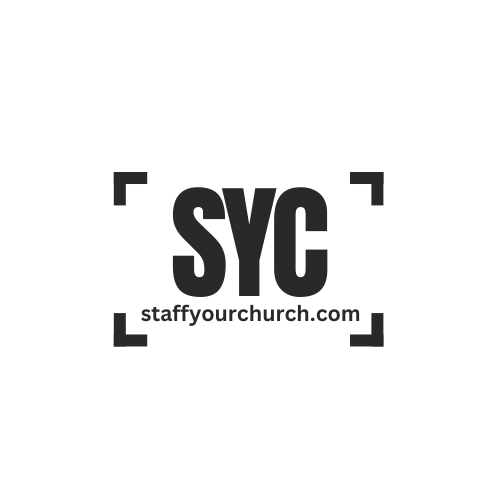
The Importance of Defining Job Roles and Responsibilities in the Church
The Importance of Defining Job Roles and Responsibilities in the Church
In the dynamic and multifaceted world of the church, every member has a unique role to play in advancing its mission. From pastors and worship leaders to administrative staff and volunteers, each individual contributes to the vibrant tapestry of ministry. To ensure a harmonious and effective functioning of the church, it is crucial to define clear job roles and responsibilities. Digging into the church hiring process we will explore the significance of establishing well-defined job roles within the church context.
- Clarity and Focus:
Defining job roles and responsibilities provides clarity and focus both for the individuals serving in the positions and for the overall direction of the ministry. When each person understands their specific responsibilities, they can work with purpose, align their efforts with the church’s vision, and avoid overlap or duplication of tasks. Clear roles create a sense of direction, enabling the entire team to move forward with intentionality and unity.
- Effective Teamwork:
In any organization, teamwork is the foundation of success, and the church is no exception. When job roles are clearly defined, it becomes easier to form cohesive teams where individuals understand their contributions and work together synergistically. By assigning specific responsibilities to each team member, their unique skills and strengths can be utilized effectively, resulting in enhanced collaboration and increased productivity.
- Empowerment and Growth:
Defining job roles within the church empowers individuals to take ownership of their responsibilities and excel in their areas of expertise. When people have a clear understanding of what is expected of them, they are more likely to feel confident and motivated in fulfilling their duties. Moreover, well-defined roles provide opportunities for personal growth and development, as individuals can focus on honing their skills and exploring their potential within their designated roles.
- Accountability:
Accountability is vital for the success of any organization, including the church. Clearly defining job roles establishes a framework for accountability, ensuring that each person is responsible for their assigned tasks and outcomes. This not only fosters a culture of responsibility and professionalism but also creates a sense of trust among team members. With well-defined roles, it becomes easier to evaluate performance, provide feedback, and address any issues that may arise, ultimately leading to continuous improvement within the ministry.
- Avoiding Burnout and Overload:
Without clearly defined roles, individuals may find themselves overwhelmed, juggling multiple responsibilities or uncertain about their boundaries. This can lead to burnout and a decline in productivity. Defining job roles helps prevent such situations by ensuring that each person’s workload is manageable and aligned with their skills and capacity. By distributing responsibilities appropriately, the church can foster a healthy work-life balance for its staff and volunteers, promoting overall well-being and longevity in service.
Defining job roles and responsibilities within the church is an essential step toward achieving effectiveness, unity, and growth. Clear roles provide clarity, empower individuals, foster effective teamwork, and promote accountability. By avoiding confusion and burnout, the church can create an environment where each member can thrive and contribute their best to the ministry’s vision. Let us embrace the importance of job role definition and cultivate a culture of purpose, collaboration, and fulfillment within our church communities.
